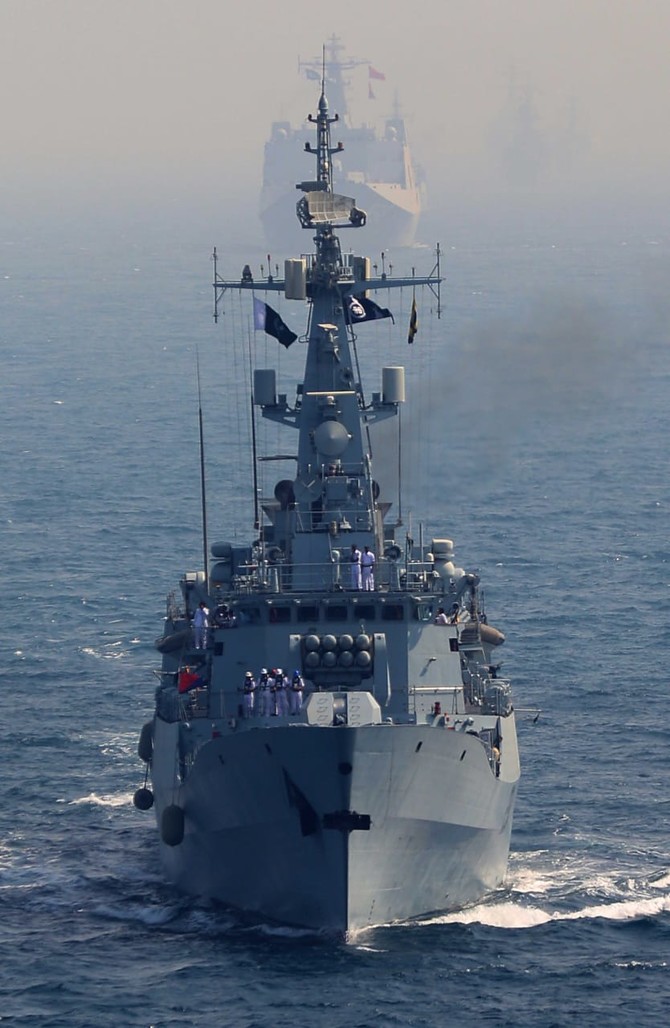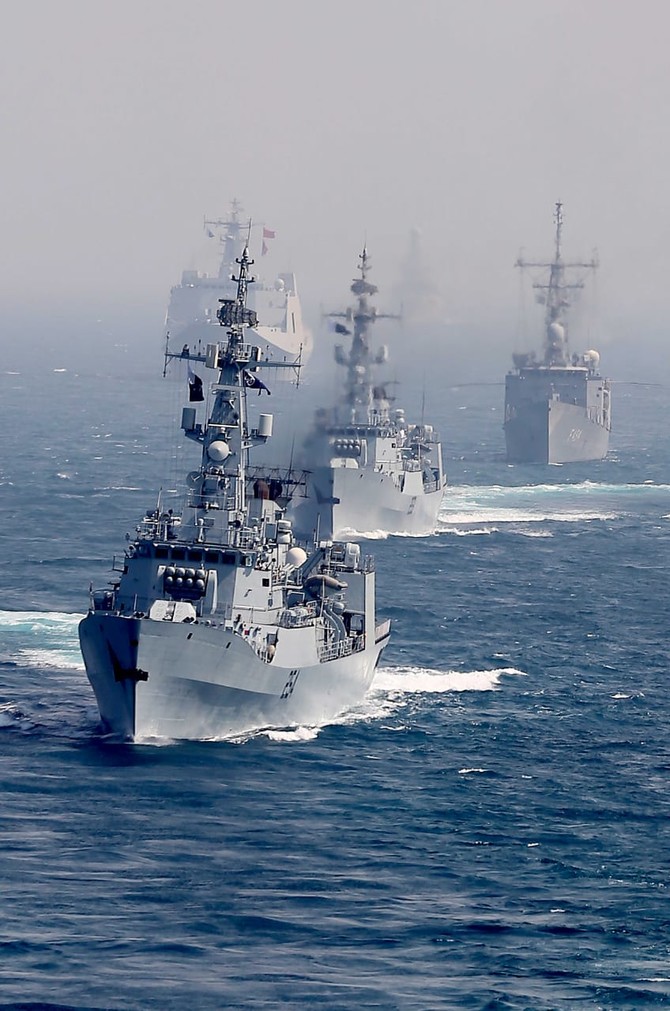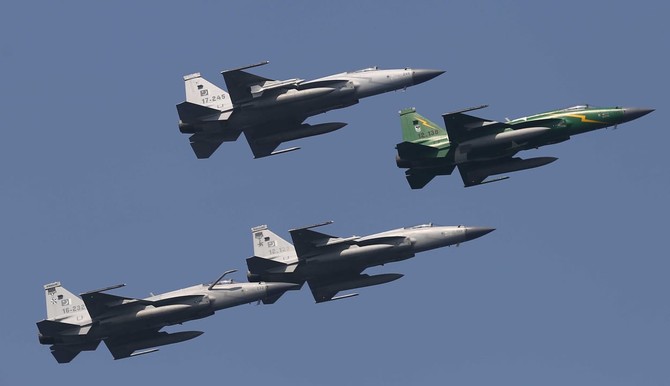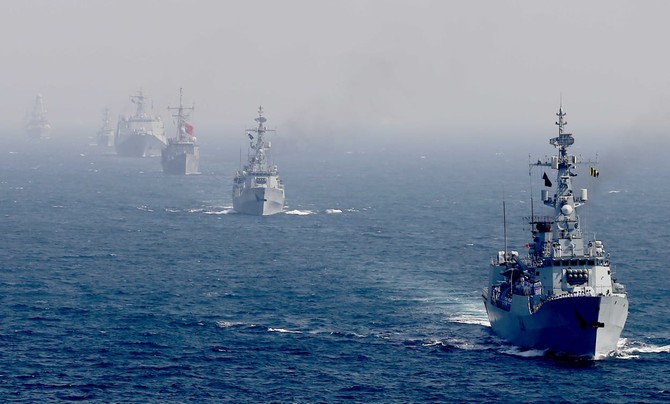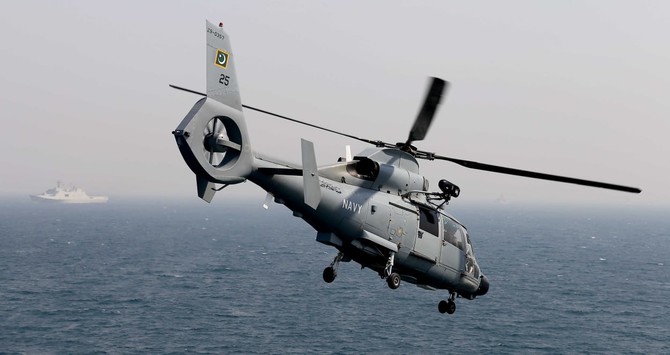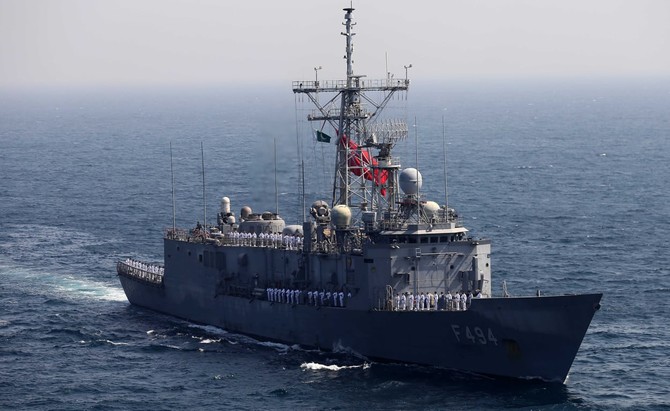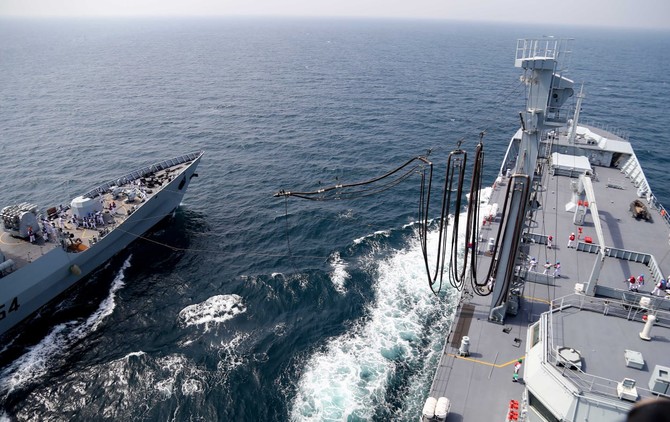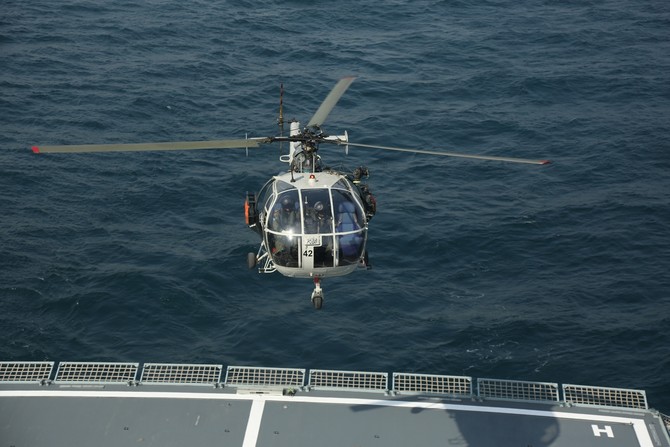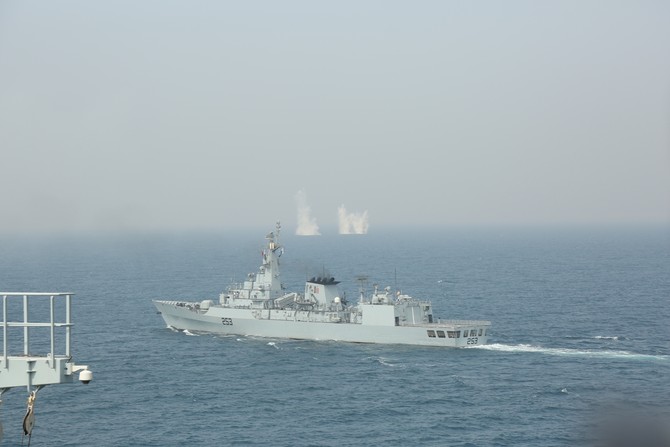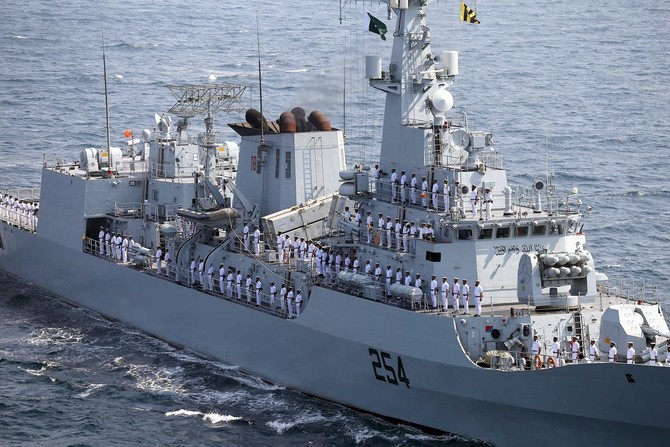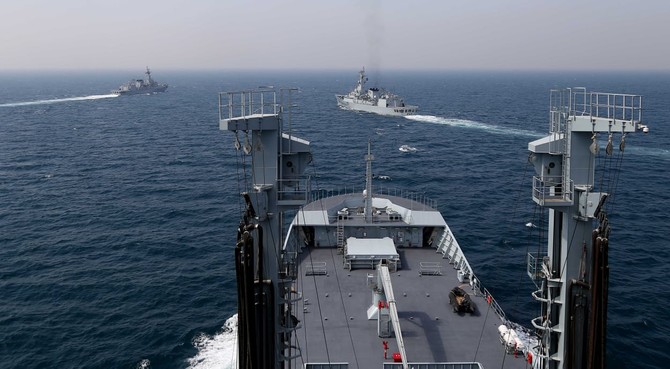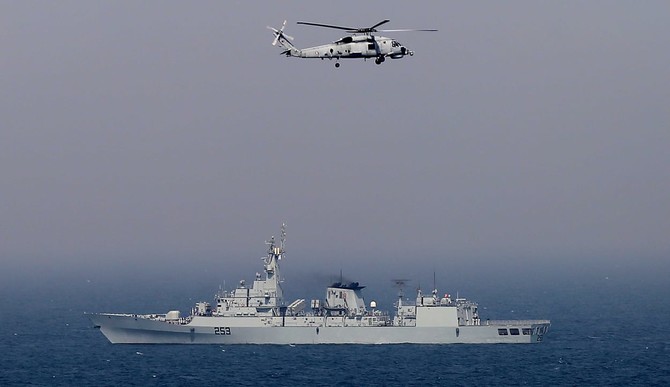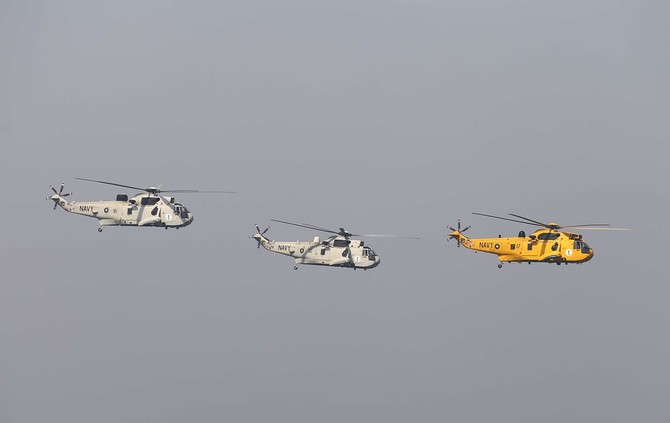KARACHI: The final installment of the Aman-19 naval exercises, which were hosted by Pakistan in the Arabian Sea, concluded with an international fleet review here on Tuesday.
President Dr. Arif Alvi was the chief guest at the event which began on Friday last week.
Around 21 naval warships of different countries — including Pakistan, the US, China, the U.K, Australia, and Italy ---acknowledged Dr. Alvi with a mark of respect during the international fleet review.
Earlier, as part of the exercise, the PNS Moawin – a Pakistan Navy’s fleet replenishment tanker commissioned on October 16 last year – conducted the refueling exercise for PNS Aslat and PNS Saif.
After being refueled, the PNS Aslat and PNS Saif maneuvered to the front and rear end of the PNS Moawin for a Rocket Depth Charge firing in a mock attack on submarines. In the third phase, they were joined by Turkish and Chinese ships for surface firing.
A flypast by aircraft belonging to the navy — and including helicopters of Chinas, Turkey, Italy, Australia, and the Pakistan Air force’s JF-17 Thunder — were some of the highlights of the fourth phase of the exercises.
Sharing details of the event, Commodore Muhammad Saleem told Arab News that 45 countries had participated in the drill. “The level of participation varied,” he said, adding that “around 12 navies, including those of the US, UK, China, Turkey, Australia, Sri Lanka, and Oman participated with their warships” while others acted as observers.
“The harbor phase has ended and today was the sea phase, which concluded with the international fleet review which is the final event of this exercise,” the naval official said, adding that after the conclusion of the drill, some countries will leave while others will stay back for joint exercises.
“The purpose of these biannual drills [which] started in 2007 is to sit together and learn from each other’s experiences with respect to combating piracy, counter-terrorism, and combating smuggling through sea,” he said.
Detailing the benefits of the exercise for Pakistan, he said that when the navies of different countries sit together, it sends out a diplomatic message which is loud and clear. “The message is that Pakistan is not isolated. It’s an important country not only in the region but in the world community as well. It also highlights the value that other countries give to the Pakistan Navy,” he said.
With respect to the China Pakistan Economic Corridor (CPEC), he said, Pakistan’s navy has instilled a sense of safety mechanism and security in all CPEC-related activities, which will be done through the sea. “Pakistan has also setup the taskforce 88, which patrols around Gwadar and adjacent areas and provides security to all ships that arrive in or leave the Gwadar port,” he said.
Pakistan is fully responsible for the security, he said “but of course when a large number of countries gather at our platform it also gives a strong message that this route is safe and secure. So, indirectly this exercise will augment the security and safety of this region”.
Earlier on Monday, the three-day International Maritime Conference organized along the theme of “Global Geopolitics in Transition: Rethinking Maritime Dynamics in the Indian Ocean Region” concluded in Karachi.
Federal Minister for Defense, Pervez Khattak, who was the chief guest on the occasion, said that the current maritime threats and the emerging geo-strategic situation was posing new challenges and risks to all stakeholders in the region.
“The situation will provide constructive dialogue and develop collective mechanism,” he said expressing confidence that the deliberations and recommendations made during the conference will provide crucial insight to maritime stakeholders for effective policy-making.
“CPEC is rightfully considered a gamechanger, not only for Pakistan but for the economic well-being and prosperity of the entire region. With the progress of CPEC and Gwadar port, maritime activities would increase manifold, especially in the western Indian Ocean,” he said, adding that the responsibilities of the country’s navy would increase with time, especially in terms of maintaining a secure maritime environment for the smooth flow of sea trade.





